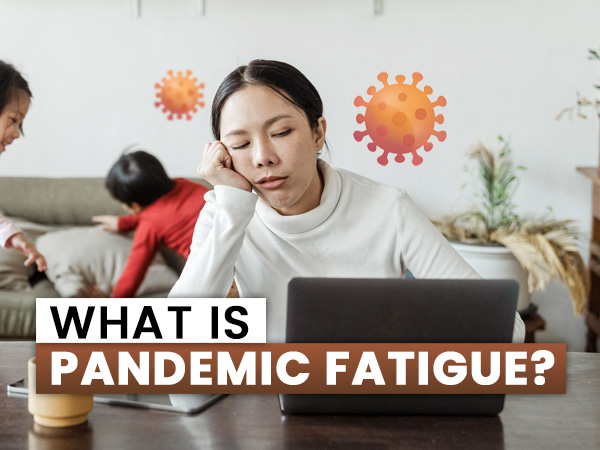Just In
- 35 min ago

- 8 hrs ago

- 17 hrs ago

- 19 hrs ago

Don't Miss
- Finance
 1:10 Split Coming Up: Crorepati FMCG ITC Turns Rs 1,50,000 To Rs 1.2 Crore; Makes Big Announcement; BUY?
1:10 Split Coming Up: Crorepati FMCG ITC Turns Rs 1,50,000 To Rs 1.2 Crore; Makes Big Announcement; BUY? - Sports
 Pakistan vs New Zealand Playing 11: PAK vs NZ 4th T20I Team News, Predicted Lineup And Other Details
Pakistan vs New Zealand Playing 11: PAK vs NZ 4th T20I Team News, Predicted Lineup And Other Details - Education
 JEE Main Result 2024 Out, Telangana's 15 Toppers Shine, Check Statewise List of 56 Candidates with Perfect 100
JEE Main Result 2024 Out, Telangana's 15 Toppers Shine, Check Statewise List of 56 Candidates with Perfect 100 - News
 Mangalsutra Row: Did Indira Gandhi Donate Gold During The 1962 War? The Facts Behind Priyanka's Claim
Mangalsutra Row: Did Indira Gandhi Donate Gold During The 1962 War? The Facts Behind Priyanka's Claim - Movies
 Kota Factory 3 OTT Release Date, Platform: When Will Jitendra Kumar's Web Series Premiere On Netflix?
Kota Factory 3 OTT Release Date, Platform: When Will Jitendra Kumar's Web Series Premiere On Netflix? - Travel
 Escape to Kalimpong, Gangtok, and Darjeeling with IRCTC's Tour Package; Check Itinerary
Escape to Kalimpong, Gangtok, and Darjeeling with IRCTC's Tour Package; Check Itinerary - Technology
 OPPO Find X7 Ultra Camera Deep-Dive: Pushing the Boundaries of Photography on a Smartphone
OPPO Find X7 Ultra Camera Deep-Dive: Pushing the Boundaries of Photography on a Smartphone - Automobiles
 Aston Martin Vantage Launched In India At Rs 3.99 Crore
Aston Martin Vantage Launched In India At Rs 3.99 Crore
What Is Pandemic Fatigue? Know More About How To Deal With This Mental Health Issue
There's much association between the COVID-19 pandemic and psychological fatigue, giving rise to a new term 'pandemic fatigue'. According to a study conducted among the population of Istanbul, around 64.1 per cent of the participants were found with psychological fatigue as the main mental health issue due to the effect of COVID-19 pandemic.

Psychological factors play an essential role during any pandemic. Due to significant day-to-day rise in coronavirus cases, stress among the people has increased. Also, factors like the loss of their loved ones, financial crisis, travel restrictions, the closing of workplace and schools and self-isolation have contributed much to psychological problems, giving rise to increased mental health issues. [1]
In this article, we will discuss pandemic fatigue in details along with other terms like zoom and messaging fatigue. Take a look.

COVID-19 And Psychological Fatigue
With the sudden appearance of a new contagious virus, people across the world have become scared. COVID-19 has not only put people's financial and safety at risk but has also posed a psychological challenge to them.
Among other clinical symptoms of COVID-19 such as fever, shortness of breath and dry cough, fatigue has also become one of the primary symptoms due to a rise in the number of cases. [2]
Fatigue can either be a symptom of an underlying physical problem or a manifestation of some mental disorder or both. Factors like age, physical condition, mental status and gender influence the experience of fatigue by an individual. It can also be due to excessive stress, exercise or any pathological reaction.
Conditions like restricted physical movement, lockdown, self-isolation and social isolation have also negatively affected the mental well-being of a person, leading to fatigue.
Another study highlights that changes in normal practices such as avoiding crowding places, physical distancing, the stress of washing hands all the time and increased insight on virus transmission through media sources are linked to fatigue. [3]


How To Deal With Pandemic Fatigue?
Pandemic fatigue can cause troubles such as sleeping problems, brain fog, lack of motivation, withdrawal from things and arguments with people. The best way to cope with these problems are:
1. Get enough sleep
Getting enough sleep of at least seven hours a day can help reduce psychological fatigue. Sleep deprivation can worsen the situation and lead you to other mental problems such as depression. Therefore, make a bedtime routine and follow it strictly. [4]
2. Exercise every day
Exercising every day will not only boost your immune system but will also provide you with psychological benefits. It helps lower your stress by relaxing your mind. Exercising should be a part of a lifestyle as it helps improve the quality of life of a person.
3. Avoid listening to every COVID-19 news
COVID-19 news is everywhere. It's good to stay informed about the ongoing scenario but listening to each and every news about COVID-19 may affect you in a negative way and cause fatigue. Listen to news from accurate sources and stay positive to cope with the situation efficiently.
4. Connect with loved ones
The lockdown imposed due to COVID-19 has given an opportunity for many to connect with loved ones. Spend time with your family and friends or connect with them through digital sources such as phones or video calls. This will prevent the feeling of isolation and thus, prevent fatigue.

5. Accept your emotions
The pandemic has filled people with mixed emotions. It can be the pain due to loss of loved ones, stress due to virus spread and feeling of loneliness due to staying far away from family or due to self-isolation. Accept your emotions in a positive way as ignoring them can cause physical stress or lead to more chronic forms such as depression.
To Conclude
Pandemic-related anxiety and fear is the main cause of pandemic fatigue. Long-term fatigue can lead to chronic depression or other psychiatric illnesses. As the end of COVID-19 pandemic cannot be determined, it is very important to make ways to deal with the situation. Consult a mental health expert or reach out to family and friends to enhance your personal well-being.
-
 healthThis Social Issue Could Be The Next ‘Epidemic,’ It Is Worse Than Smoking 15 Cigarettes A Day
healthThis Social Issue Could Be The Next ‘Epidemic,’ It Is Worse Than Smoking 15 Cigarettes A Day -
 healthWhat Is Disease X? 20 Times More Deadlier Than Covid 19; Can Cause 50 Million Deaths, Does It Have Vaccine?
healthWhat Is Disease X? 20 Times More Deadlier Than Covid 19; Can Cause 50 Million Deaths, Does It Have Vaccine? -
 pregnancy parentingKidulting: Where Adulthood and Nostalgia Collide in the Best Possible Way
pregnancy parentingKidulting: Where Adulthood and Nostalgia Collide in the Best Possible Way -
 wellnessIndia Emerged Successfully In The Management Of Covid-19 Pandemic: Mansukh Mandaviya
wellnessIndia Emerged Successfully In The Management Of Covid-19 Pandemic: Mansukh Mandaviya -
 wellnessWe Are Able To Predict Pandemic Based On Changes In Virus, Other Signals: Bharat Biotech Founder
wellnessWe Are Able To Predict Pandemic Based On Changes In Virus, Other Signals: Bharat Biotech Founder -
 wellnessCovid-19 Not Over Yet Completely, Be Alert And Follow Govt's Guidelines: President Ram Nath Kovind
wellnessCovid-19 Not Over Yet Completely, Be Alert And Follow Govt's Guidelines: President Ram Nath Kovind -
 wellnessCovid-19 Pandemic Far From Over, 1.5 Million New Cases Daily, Says UN Secretary-General
wellnessCovid-19 Pandemic Far From Over, 1.5 Million New Cases Daily, Says UN Secretary-General -
 nutritionCovid Effect: Indian Consumers Now More Conscious Of Health, Fitness And Holistic Nutrition, Says EY Survey
nutritionCovid Effect: Indian Consumers Now More Conscious Of Health, Fitness And Holistic Nutrition, Says EY Survey -
 fashion trendsFDCI x Lakmé Fashion Week To Be Held In Delhi For The First Time In March 2022 In Physical Format
fashion trendsFDCI x Lakmé Fashion Week To Be Held In Delhi For The First Time In March 2022 In Physical Format -
 healthRisk Persists Even Though COVID Cases Starting To Plateau In Parts Of India: WHO
healthRisk Persists Even Though COVID Cases Starting To Plateau In Parts Of India: WHO -
 womenExpert Opinion: Mental Health And Behavioural Issues In Female Victims Of Violence Or Sexual Assault
womenExpert Opinion: Mental Health And Behavioural Issues In Female Victims Of Violence Or Sexual Assault -
 healthNeglected Infectious Diseases May Be Tomorrow's Pandemic: Bharat Biotech Chief Dr Krishna Ella
healthNeglected Infectious Diseases May Be Tomorrow's Pandemic: Bharat Biotech Chief Dr Krishna Ella


 Click it and Unblock the Notifications
Click it and Unblock the Notifications



